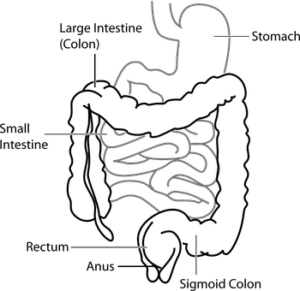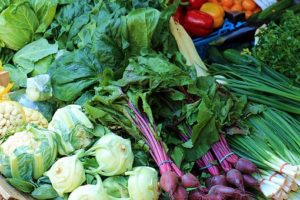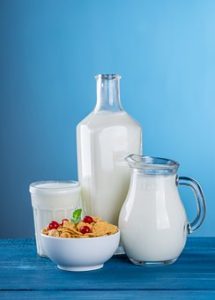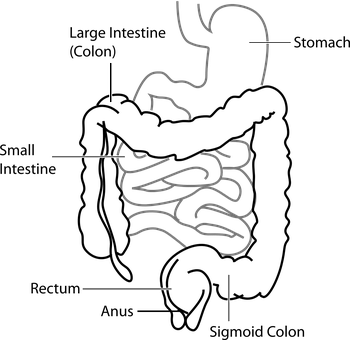Irritable bowel syndrome (IBS) is a common disorder that disrupts the proper functioning of the large intestine. Although it may not be a dangerous and life-threatening disease, it’s painful and disturbing to the sufferer. It has distinct mild to severe symptoms, manageable only by controlling the food habits and lifestyle.

What is Irritable Bowel Syndrome?
Irritable bowel syndrome (IBS) carries different names such as spastic colon, irritable colon, mucous colitis, and spastic colitis. IBS is a combination of different intestinal symptoms that invade the intestinal system together. IBS is an enduring condition, manageable only by persistent control over eating habits for a longer period of time. The severity of IBS is different in all. The mild IBS is controllable without any medication. It normally occurs thrice a month and its effects continue for over three months.
Common Signs and symptoms of IBS
Common symptoms of IBS include cramps, abdominal pains, bloating, gas, diarrhea, constipation, or alternately both, and having a persistent feeling to visit toilets.
IBS Symptoms in Women

IBS is frequently seen more in women than in men. During and around the menstrual period, many women generally suffer from IBS except the women past their menopause. Women suffering from IBS feel fatigued, backache, cramping, insomnia, and sensitivity to food.
Severe pelvic pain, worsened menstrual symptoms, painful urination, and anxiety are symptoms other than those mentioned above.
Causes of IBS
The real causes behind IBS aren’t precisely known, but the experts believe that following may be the reasons for it.
Intestine muscle contraction:
The constituents of intestine walls have muscle layers and because of their contraction, the food is pushed to the digestive tract. If the contractions remain stronger and last longer than normal, this causes the formation of gas, bloating, and the occurrence of diarrhea. Whereas, milder intestinal contractions are unable to push forward food faster and leading to hard and dry stools.
Uncoordinated Nervous system:
The experts believe that poor response from the brain leads to bad coordination between the nervous system and intestines. In this case, the body overreacts and hurts the digestive system, resulting in pains and diarrhea or constipation.
Inflammation:
The immune system cells in intestines increase because of inflammation in the intestines leading to IBS with pain and diarrhea symptoms.
Gastroenteritis:
Bacterial or viral infections could lead to intense spells of diarrhea. The accumulation of bacteria in the intestine could also cause IBS.
What aggravates IBS?
IBS symptoms are aggravated by different factors.
Food:
Some foods react and aggravate IBS those include wheat products, dairy products, citrus fruits, beans, cabbage, and carbonated drinks. However, food allergies are not attributed to IBS.
Stress:
Stress often caused by an indifferent lifestyle to trigger IBS symptoms. However, stress can only aggravate already existing symptoms.
Hormonal Shift:
Women are more susceptible to IBS than men. The experts believe that hormonal changes, especially during menstruation aggravate it.
Related post-
Foods that heal digestion and improve Bowel movements
Home Remedies for Common Digestive Disorders
Treatment of IBS
The focus of the treatment of IBS is more on controlling your diet and lifestyle than through medications. The experts believe in the following for controlling IBS symptoms.
Control Diet to Control IBS

High-fiber diet: Eat fiber-rich diet, say 20 to 35 grams of fiber per day, as fiber improves and controls the bowel movement. Focus more on soluble fiber found in fruits and vegetables than in grains.
Less fiber in food: People who have IBS with gas and diarrhea symptoms should have a low fiber diet. Try eating apples, berries, carrots, and oatmeal in meals. Avoid common sources of insoluble fiber such as whole grains, nuts, tomatoes, raisins, broccoli, and cabbage.
Gluten-free diet: Many people develop sensitivity or intolerance to the gluten in barley, rye, and wheat. This leads them to IBS. Avoid wheat bread and pasta, as gluten is a protein that sometimes damages the intestines of gluten-intolerant people.
Dairy products: Avoid Dairy Products as these could increase your IBS Symptoms. However, probiotic yogurt is a good option.

Stay Active: Enhancement of your physical activity, walks, and exercises.
De-Stress: Reducing the stressful life and avoid stress-inducing situations if possible.
Sleep Well: To control IBS, your stipulated sleeping time is essential.
CBT: Go for cognitive behavior therapy that would help in having certain behavior patterns to help you deal with IBS.
Controlling IBS is in your hands, live a healthy life by maintaining your lifestyle.
Ref sources:
https://www.niddk.nih.gov/health-information/digestive-diseases/irritable-bowel-syndrome/treatment
https://www.healthline.com/health/irritable-bowel-syndrome/symptoms-men-women#4
https://www.mayoclinic.org/diseases-conditions/irritable-bowel-syndrome/symptoms-causes/syc-20360016
https://www.healthline.com/health/ibs-diet#takeaway






